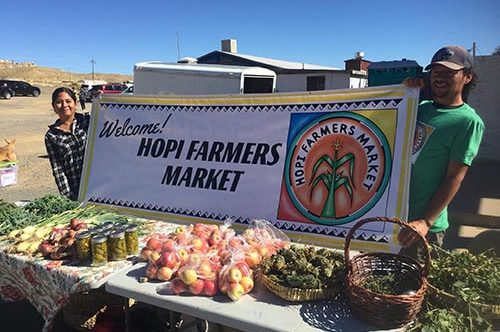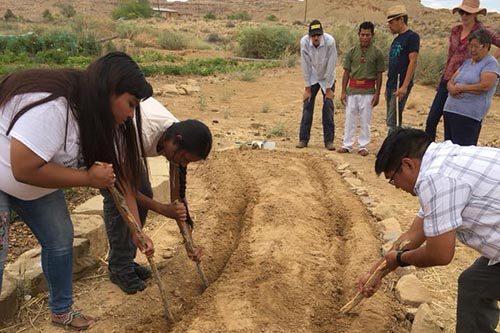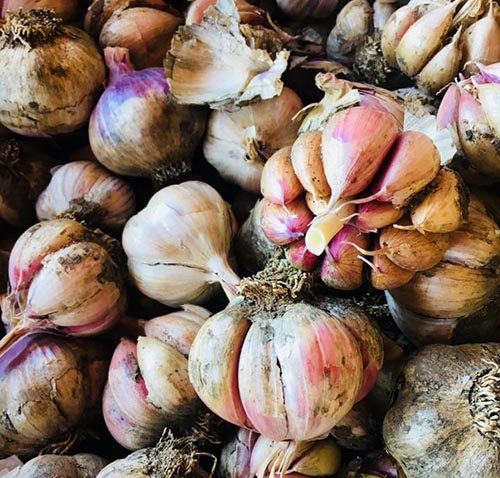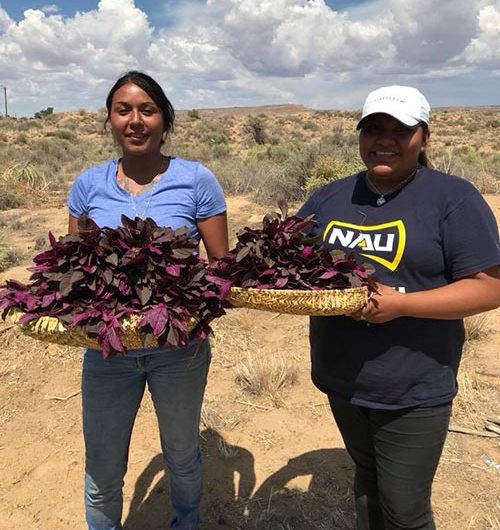Hopi Tutskwa Permaculture Institute (Arizona, US)
When the Seeds, Soil & Culture Fund began, I visited the village of Kykotsmovi on the Hopi Indian Reservation in northern Arizona. Kykotsmovi sits in a semi-arid landscape of distant views and hills of jutting rock, bathed in golden light and flecked with bushes and trees. Lilian Hill, the Executive Director of Hopi Tutskwa Permaculture Institute (HTPI), took me to the mesa communities, ancient villages perched above the plains, where the original Hopi people resided and where many still do.
Throughout history, Hopi people farmed the lands below the mesas, growing heirloom corn, beans, squash, melons, pumpkins, apples, peaches, apricots, pears, and medicinal plants. Their health and well-being depended on deep and intimate knowledge of their land and relationship with the spiritual forces of nature, following the teachings of Hopi ancestors and elders. Hopi agrarians developed farming practices that nurtured the natural world and people over many generations. Traditional foods that sustained Hopi people for thousands of years, such as sacred blue corn, are spiritual nourishment, enabling Hopi women and men to better understand their purpose in life and to grow as human beings. Put simply, food is the basis of Hopi philosophy, and farming brings Hopi values into action.
Hopi agriculture relies on rain and runoff water. It’s dry farming, a traditional art that Hopi people deeply revere. Dry farming is rigorous and labor-intensive and is still performed primarily by hand. Hopi farmers practice floodwater farming to irrigate their fields. Manual irrigation on terraces with buckets or gravity-fed irrigation using conduits from artesian springs are used as well. Through dry farming, Hopi farmers enter into a spiritual covenant with Màasaw, guardian and protector of the world. Dry farming requires patience, humility, hard work, and a heart of prayer. Crops are raised in a loving manner by Hopi farmers as if the seeds and plants are their children. Seeds are sacred to Hopi farmers. Hopi seed keepers are elders, often women, who safeguard knowledge of Hopi ceremonies to protect the seeds.
HTPI organizes Na’ya (working together) parties to regenerate farms, restore water sources and increase the role of traditional food in the local economy. It supports a food cooperative to improve community nutrition and sponsors a Farmers Market to increase local community access to traditional Hopi Foods and build the capacity of Hopi Farmers. HTPI’s Hopi Youth Permaculture Program teaches young people 12-18 years old about Hopi agroecology via on-farm learning from crop growers, orchard keepers, bee keepers, herbalists, water keepers, seed stewards, and building experts. Older youth learn specialized knowledge about soil and water restoration, plant propagation, seed biology, and environmental science. They restore artesian springs and traditional fields, prune and care for fruit orchards, build earthwork structures, create pollinator habitats, and teach culinary techniques guided by local cooks and chefs.
In the tradition of caring for and respecting the natural environment for past, present, and future generations, HTPI helps Hopi people today learn skills and gain experience in healthy ecological living while vigilantly honoring Hopi cultural ways. HTPI strives to strengthen the viability and conservation of Hopi food systems and its cultural values of selfless cooperation and helping others for the good of all.
Return to the May 2019 Newsletter Index



